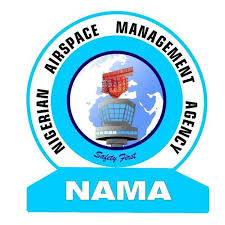Paragraph 1: A Landmark Audit for Nigerian Airspace
The Nigerian Airspace Management Agency (NAMA) has initiated a comprehensive audit of the nation’s airspace, a milestone in its 25-year history. This self-assessment, covering the entire Kano Flight Information Region (FIR), which encompasses all of Nigeria’s airspace, aims to evaluate the safety, operational efficiency, and regulatory compliance of the country’s air navigation systems. The audit represents a proactive step towards achieving international best practices and aligns with NAMA’s mandate to provide safe and efficient air navigation services. It underscores the agency’s commitment to global standards and sets the stage for future advancements in Nigerian aviation.
Paragraph 2: Preparing for Certification and International Scrutiny
The timing of this audit is crucial. It precedes the Nigerian Civil Aviation Authority’s (NCAA) Air Navigation Service Provider (ANSP) certification, a vital process for validating NAMA’s operational capabilities. Furthermore, the audit prepares Nigeria for the International Civil Aviation Organization’s (ICAO) upcoming evaluations: the Universal Safety Oversight Audit Programme (USOAP), Coordinated Validation Mission (CVM), and Regional Office Safety Team Mission (ROSTM). These international assessments scrutinize a country’s adherence to global aviation safety and security standards. By undertaking this self-audit, NAMA demonstrates its commitment to meeting these rigorous standards and enhancing its standing within the global aviation community.
Paragraph 3: A Transformative Step for Nigerian Aviation
NAMA’s Managing Director, Farouk Umar, characterizes the audit as a transformative step for Nigerian aviation. It signifies a proactive approach to strengthening the nation’s airspace management and positioning Nigeria for international recognition. This initiative, the first of its kind in NAMA’s history, showcases the agency’s dedication to continuous improvement. It also reflects a commitment to fostering accountability and transparency in its operations, ultimately aiming to establish Nigerian airspace as a model of operational excellence within Africa and beyond.
Paragraph 4: Comprehensive Scope and Focus on Key Components
The audit encompasses a wide range of critical areas within airspace management. This includes thorough inspections of Air Traffic Services (ATS), the backbone of airspace control, ensuring the safe and efficient flow of air traffic. It also evaluates the Communication, Navigation, and Surveillance (CNS) infrastructure, the technological foundation for modern air navigation. Furthermore, the audit assesses Aeronautical Information Management (AIM), crucial for providing pilots and other stakeholders with accurate and timely information. It also examines Planning, Research, and Statistics, essential for data-driven decision-making and future development. Lastly, Search and Rescue (SAR) operations are reviewed to ensure preparedness for emergency situations.
Paragraph 5: Strategic Benchmarking and Pursuit of Global Excellence
This comprehensive assessment extends to Nigeria’s major international airports, including Lagos, Abuja, Kano, and Port Harcourt, as well as crucial regional hubs like Enugu and Maiduguri, and numerous other aerodromes across the country. The audit is not merely a compliance exercise; it represents a strategic move to benchmark Nigeria’s aviation system against the highest global standards. It aims to build robust and resilient systems that are respected internationally. This demonstrates Nigeria’s commitment to continuous improvement and positions its airspace as a symbol of operational excellence across the African continent.
Paragraph 6: Dedicated Committee and Emphasis on Safety and Efficiency
To ensure the audit’s effectiveness, the Managing Director has established a dedicated FIR Audit Committee, chaired by the Director of Special Duties. This committee comprises experts from various departments, including air traffic services, CNS/ATM systems, AIM, safety management, and search and rescue, ensuring a comprehensive and expert-led assessment. This highlights NAMA’s commitment to safety and efficiency as non-negotiable priorities. The audit strengthens operational systems and solidifies Nigeria’s credibility and leadership within the global aviation community. The results of this audit will be instrumental in shaping the future of Nigerian aviation, enhancing safety, and promoting efficiency in the nation’s airspace.














